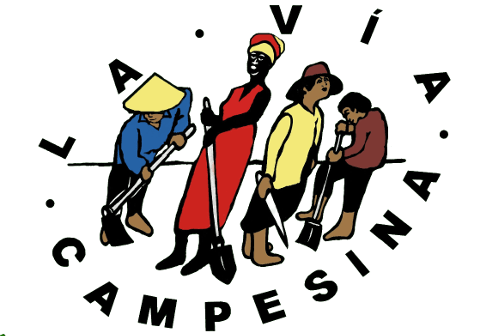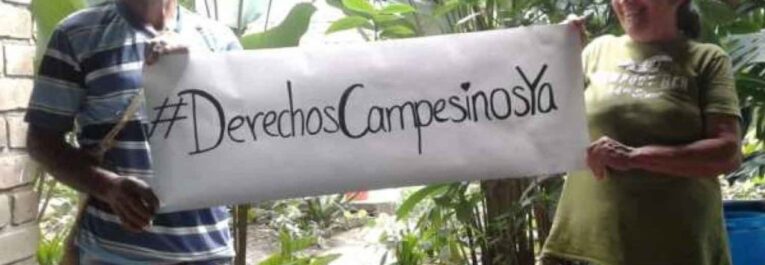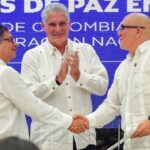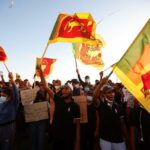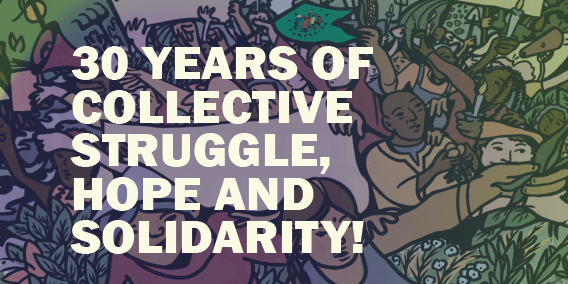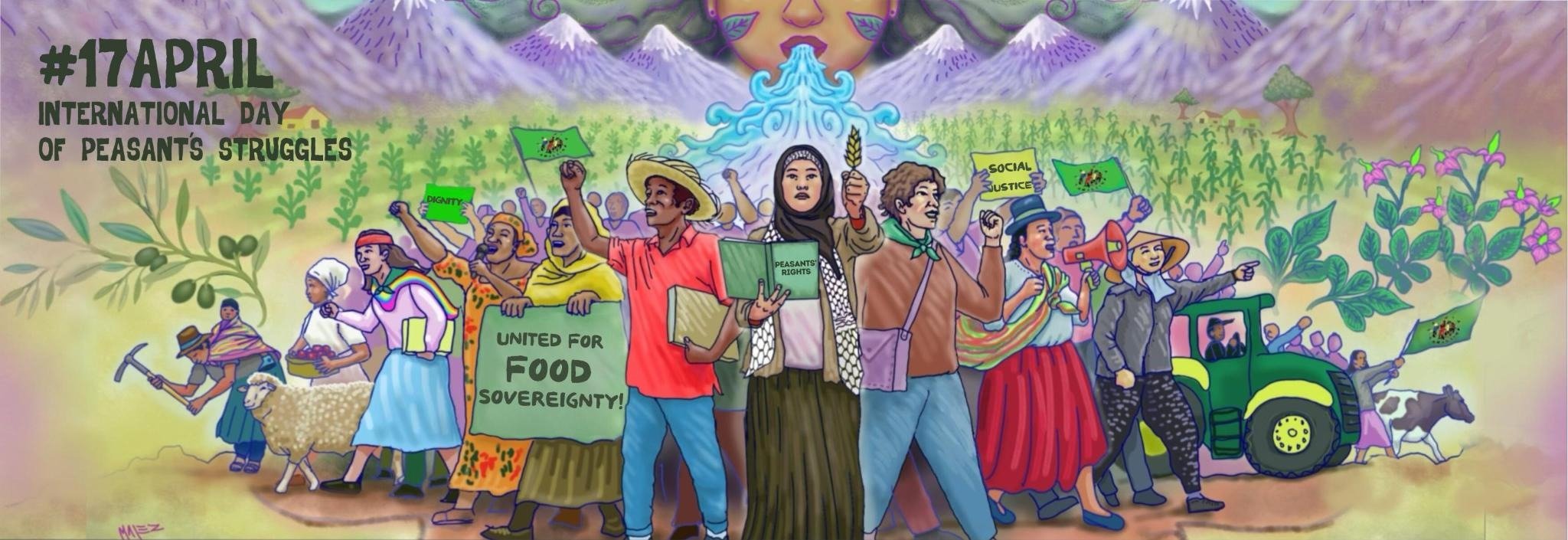In Colombia there is a historical debt to the peasants’ collective. They have suffered the consequences of implementing a dispossession model which has favored a small number of people who concentrate the ownership of land and wealth. This is evident seeing the high Gini index[1] regarding land ownership, where Colombia has a score of 0.89 meaning that it is one of the most inequitable countries in the world. According to European Economic Commission to Latin America (CEPAL) in 2020 the rural poverty in Colombia was 46.3%, showing that the rural poverty is constantly growing.
Added to this reality is the failure of agrarian reforms and policies that do not seek to solve one of the central problems in the country, which represents one of the causes of the emergence of the internal armed conflict, peasant strikes and mobilizations of great historical relevance. One of the great challenges of Gustavo Petro’s government is to advance in responding to these problems, taking into account the peasant, proletarian and popular voices and recognizing that the agrarian problem requires structural changes in the political, economic and social system of the country.
In this context, for more than 12 years we, Plataforma Aguante Popular, Nororiente (CNA), have advocated -as part of the peasant popular movement, in the roads and highways through protests and institutional contest- for the acknowledgment of peasant collectives as a social-political entity of rights. This recognition would modify Article # 64 of Colombian National Constitution so that the peasant collective, its cultural and political identity, its rights to access to land, to its own territoriality and economy, and its central role in the protection and conservancy of nature indeed will be seen as an actual right.
Besides, by recognizing peasants’ collectives as a social-political entity of rights, there would be given relevance to their traditional knowledge and ways of living that aim to protect and reproduce native seeds, practices which have been criminalized by the past Colombian governments. In addition, the performance of public popular consultations set up by Colombian national and local governments would be ratified when it comes to projects that pretend to affect peasants’ territories, the production of food or any natural resource. Thus, actual guarantees will be required to protect rights such as education, health care, residence, feeding, social security benefits and recreation which during their formulation and application should have into account a differential, generational and territorial approach that gives effective response to peasant’ communities necessities.
During the search for approval of this legislation, there have been obstacles and lack of political will to prioritize its discussion. Nevertheless, on May 31 of this year the proposal was approved by consensus on its 7th debate. There needs to be just one more debate for this project to be a materialized reality, however there are some remarks like Paloma Valencia’ comment (Centro Democratico political party’ senator) who said that this project should not affect the development of business and enterprise’ freedom in the country, which is an indication that for landowners and traditional political class who have held power and to whom they represent, the solution to countryside’ challenges must not affect the roots and its true causes nor the interests of big national and transnational companies that see countryside as a possibility to continue gathering economic resources. Despite the obstacles the project is still in progress.
With that said, it is correct to state that there are some changes happening and it is expected to have final approval of the legislation which will depend on the congress of Colombia. However, it is still a challenge to achieve concrete proposals towards the real structural transformations that Colombian countryside requires.
In the Peasant National Convention held in 2022, different organizations and peasant communities insisted to president Petro’ government on the urgent necessity to deeply change the production model. As we spoke to him about our bet towards a Popular Comprehensive Agrarian Reform that acknowledges the power relationships and the struggle of land ownership, its use, the control of means of production, as well as the approach of the social, cultural, and political dimensions of the historical debt to peasants’ collective in Colombian territory. This proposal should be focus of feedback from communities. In addition, it must be simultaneously supported not only by organized participation but also through institutionalized, and mobilized manifestation.
Article by Plataforma Aguante Popular, Nororiente (CNA)
Photo: RENAF
[1] A Gini index of 0 represents perfect equality, while an index of 100 (or 1) implies perfect inequality.
